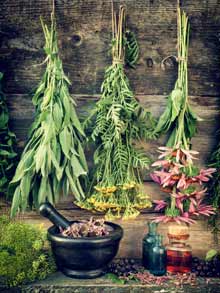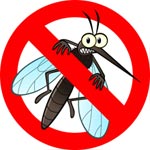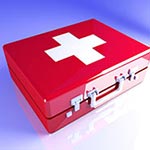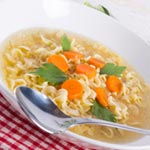Is Herbal Medicine The Way To Go

Many people only think of herbs in terms of cooking and do not realize that herbs may be used for healing purposes as well. Herbal remedies were actually used as ancient forms of healing by our ancestors for centuries.
When researching the history of herbal medicine, many experts in the field look to the use of herbs in Indian and southeast Asian cultures. These cultures have used preparations from herbs and plants for over 6,000 years. One of their traditions of healing was called Ayurvedic medicine. The word Ayurvedic means “the complete knowledge for long life” and this approach follows principles and strategies for extending longevity and providing a healthy life.

The practice of using herbal medicine refers to using a plant’s seeds, berries, roots, leaves, bark or flowers for healing purposes. These parts can be prepared as extracts, poultices, herbal teas and many other ways.
The history of herbal medicine cannot be denied. Herbs have played and will continue to play a major role in our society’s medical systems, and have a major role in healing the sick and providing ways to manage illness in a holistic and effective way. It is estimated that nearly eighty percent of the world’s population uses herbs for some aspect of primary health care. In the United States, more than 1,500 herbal remedies are sold as dietary supplements. Some of the top selling herbs include Echinacea, garlic, goldenseal, ginseng, ginkgo, saw palmetto, aloe, ephedra, Siberian ginseng and cranberry.
It has been estimated that up to seventy-five percent of the human population on earth still uses herbal medicine techniques and preparations as either their only source or as a major source of healing. Another lesser known fact is that a large amount of our traditional western medicines are derived from plants and herbs that exist in nature.
Herbs are actually the foundation of modern pharmacology and have been used to make many mainstream medicines. One of the most mainstream medicines made from herbs is aspirin, which derived from white willow bark.
Unlike prescription and over-the-counter medications, herbal remedies are not regulated by the Food and Drug Administration (FDA), which means the manufacturers of these products don't have to submit studies to the FDA about the safety and effectiveness of the products before putting them on the market. For this reason, there are some important guidelines that you may want to follow when using herbal remedies.
One of these guidelines may be to clarify a correct diagnosis from a health care provider to rule out a serious illness before using herbal remedies as a treatment.
Another important factor to remember is to buy herbs from a reputable source/manufacturer. Most companies and stores that you buy from should also be knowledgeable and able to give information about the herbs you are buying and answer any questions you may have.
It is also best to avoid herbs during pregnancy especially during the 1st trimester, if you are trying to get pregnant or if you are lactating. Herbal medicines that can be perfectly safe for you may not be safe for your baby.
Just like modern synthetic medicine, it is vital to always keep herbal remedies out of reach from children. You should also strictly follow the directions on the bottle when taking the herbs and only buy herbs that give a clear description of the ingredients.
There are arguments on both sides the issue as to whether or not herbal medicine is a viable cure for illnesses. Herbal medicine has grown in popularity with not only followers of alternative medicine but also those who want to enhance their present lifestyle. Herbal medicine continues to prove safe and effective under proper use, and could be even more so if patients can bridge the gap between their modern medical practitioner and their desire to understand and potentially benefit from herbal medicine.
You might also be interested in...
-
 10 Cheap Activities For Family Fun Night
10 Cheap Activities For Family Fun Night
-
 8 Habits that Could Be Hurting Your Marriage
8 Habits that Could Be Hurting Your Marriage
-
 The Benefits Of Coconut Milk
The Benefits Of Coconut Milk
-
 Top Tips For Bone Health For Women
Top Tips For Bone Health For Women
-
 Caring for Both Your Children and Your Parents
Caring for Both Your Children and Your Parents
-
 Debunking Common Relationship Myths
Debunking Common Relationship Myths
-
 Family Life Insurance for Young Families
Family Life Insurance for Young Families
-
 Five Expensive Home Improvement Projects that Won’t Boost Value
Five Expensive Home Improvement Projects that Won’t Boost Value
-
 Five Home Improvement Projects that Pay Off
Five Home Improvement Projects that Pay Off
-
 Health Benefits Of Cashews
Health Benefits Of Cashews
-
 Help Your Aging Parents Prepare for Retirement
Help Your Aging Parents Prepare for Retirement
-
 How to Get the Grandkids to Help with Chores
How to Get the Grandkids to Help with Chores
-
 How to Prepare a Family History for the Younger Generations
How to Prepare a Family History for the Younger Generations
-
 Is Herbal Medicine The Way To Go
Is Herbal Medicine The Way To Go
-
 Natural Mosquito Repellants
Natural Mosquito Repellants
-
 Planning Ahead: Family Life Insurance
Planning Ahead: Family Life Insurance
-
 How To Prevent The Common Cold And Flu Virus
How To Prevent The Common Cold And Flu Virus
-
 Taking Care Of The Caregiver
Taking Care Of The Caregiver
-
 Ten Best Fruits, Vegetables, and Herbs Families Can Grow at Home
Ten Best Fruits, Vegetables, and Herbs Families Can Grow at Home
-
 Ten Tips for Successful Single Parent Families
Ten Tips for Successful Single Parent Families
-
 Top 10 Health And Safety Tips For Fall And Winter
Top 10 Health And Safety Tips For Fall And Winter
-
 Top Ten Household Safety Tips
Top Ten Household Safety Tips
-
 Why All Women Need Life Insurance Too
Why All Women Need Life Insurance Too
-
 Why you should go on vacation
Why you should go on vacation
-
 Who Should Be Your Beneficiary
Who Should Be Your Beneficiary
-
 The Benefits Of Vitamin B
The Benefits Of Vitamin B
-
 5 Reasons To Eat Homemade Chicken Noodle Soup
5 Reasons To Eat Homemade Chicken Noodle Soup
-
 6 Healthy Breakfast Ideas
6 Healthy Breakfast Ideas
-
 5 Tips To Prepare For Allergy Season
5 Tips To Prepare For Allergy Season
-
 Unusual Ways To Keep Your Mind Sharp
Unusual Ways To Keep Your Mind Sharp
-
 Food That Isn’t As Healthy As You Think
Food That Isn’t As Healthy As You Think
-
 4 Things That Are Secretly Killing Your Healthy Lifestyle
4 Things That Are Secretly Killing Your Healthy Lifestyle
-
 Questions You Need To Ask At Your Next Checkup
Questions You Need To Ask At Your Next Checkup
-
 How To Make A Comeback After An Illness
How To Make A Comeback After An Illness
-
 4 Benefits Of Water Most People Don’t Know
4 Benefits Of Water Most People Don’t Know
-
 Heartfelt Advice To Avoid Heart Disease
Heartfelt Advice To Avoid Heart Disease
-
 What Is Respite Care And Are You One Of Millions Of People That May Need It?
What Is Respite Care And Are You One Of Millions Of People That May Need It?
-
 Three Tricks To Healthy Eating
Three Tricks To Healthy Eating
-
 How Important Is Estate Planning?
How Important Is Estate Planning?
-
 5 Backyard Grill Safety Tips
5 Backyard Grill Safety Tips
-
 Combining Insurance After Marriage: Updating Your Life and Health Policies
Combining Insurance After Marriage: Updating Your Life and Health Policies
-
 Top 5 Crazy Food Options at Globe Life Park, Home of the Texas Rangers
Top 5 Crazy Food Options at Globe Life Park, Home of the Texas Rangers
-
 4 Dangers of Owning an Exotic Pet
4 Dangers of Owning an Exotic Pet
-
 4 Ways Life Insurance Helps Families Plan for the Future
4 Ways Life Insurance Helps Families Plan for the Future
-
 Why Young Families Need Life Insurance
Why Young Families Need Life Insurance
-
 Reasons to Consider Travel Insurance
Reasons to Consider Travel Insurance
-
 3 Ways to Know It's Time to Increase Your Life Insurance Coverage
3 Ways to Know It's Time to Increase Your Life Insurance Coverage

 Insurance products are available in New York from
Insurance products are available in New York from  Insurance products are available in your state from
Insurance products are available in your state from 




















































